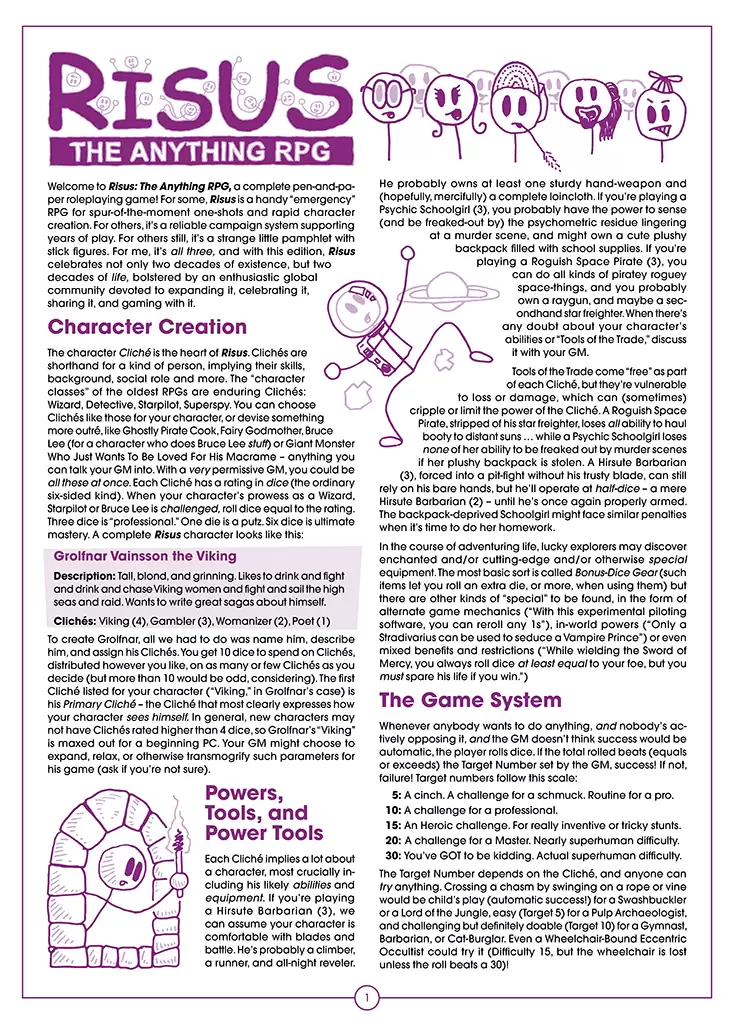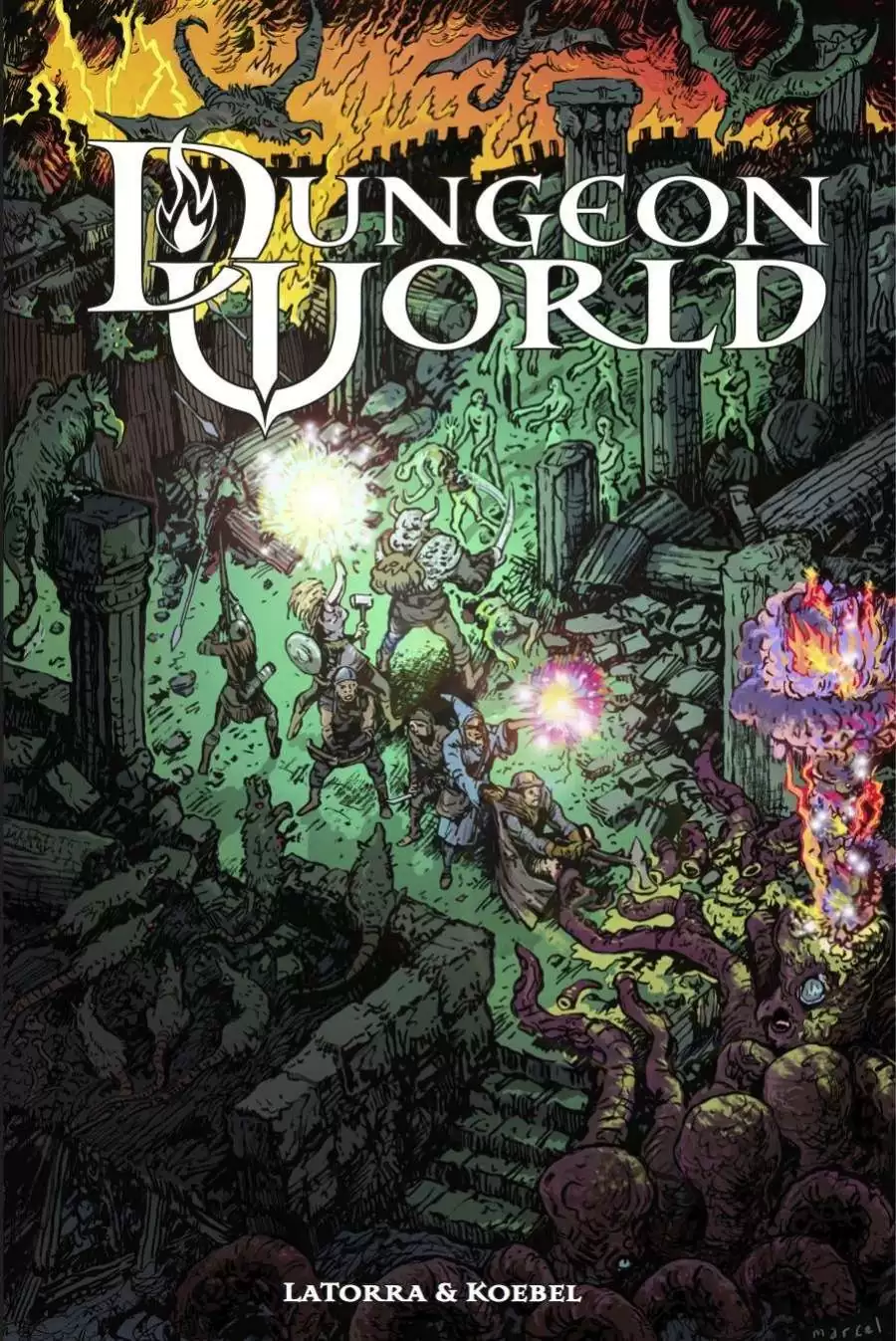Risus Fantasy; Comedy; Universal; Rules Lite; Collaborative Worldbuilding; Quick-Play
Risus is a rules-lite tabletop RPG designed for quick play, comedy, and collaborative worldbuilding. Its universal system allows for diverse settings and encourages player creativity through the use of character clichés. This report explores Risus's core mechanics, unique features, target audience, and overall player experience, highlighting its adaptability and appeal to both novice and experienced roleplayers.
Theme and Setting
Risus distinguishes itself with its universal nature. It isn't tied to any specific genre, allowing players and GMs to explore various settings, from fantasy and science fiction to modern and historical scenarios. While primarily designed with comedy in mind, Risus can be adapted for more serious campaigns. The Risusiverse showcases a wide array of settings created by fans, demonstrating the game's flexibility and the community's imaginative contributions, including settings like 'Risus Elizabethulhu' and 'Risus Mariachi'. The core idea is that the setting is defined collaboratively by the players and Game Master, which helps to foster a sense of shared ownership and creative investment in the world.
Core Mechanics and Rules
The core mechanic of Risus revolves around character clichés, which represent a character's skills, abilities, and defining traits. Each cliché is rated with a number of dice (d6), indicating proficiency. When a character attempts an action, the player rolls the dice associated with the relevant cliché.
Success is determined by matching or exceeding a target number, typically based on the difficulty of the task. Combat involves pitting clichés against each other, with dice subtracted from a cliché upon failure. When a cliché reaches zero dice, it's 'gone,' representing the character's defeat in that particular area of expertise. This 'death spiral' mechanic encourages tactical decision-making. The system is designed for quick resolution and improvisation, minimizing the need for complex calculations or rule interpretations. For example, a character with the "Skilled Swordsman (3)" cliché rolls 3d6 when attacking with a sword.
What Makes It Unique
Several aspects contribute to Risus's uniqueness: its extreme simplicity, its focus on comedy, and its universal applicability. Character creation is rapid, allowing players to jump into the game quickly. The reliance on player-defined clichés encourages creativity and collaborative storytelling. The rules-lite nature of Risus enables GMs to easily adapt the system to various settings and scenarios, promoting improvisation and flexibility. Also, the death spiral mechanic encourages players to protect their clichés. Moreover, Risus is free, thus accessible to anyone.
Target Audience and Player Experience
Risus is primarily aimed at players seeking a lighthearted, rules-lite RPG experience. Its accessibility makes it suitable for beginners, while its flexibility appeals to experienced roleplayers looking for a system that prioritizes creativity and improvisation. The game fosters a collaborative environment where players actively contribute to the story and worldbuilding. Player feedback on platforms like Reddit indicates that Risus is particularly well-suited for one-shot adventures and introducing new players to tabletop RPGs. Although it is designed for comedy, experienced groups can deepen the experience by adding serious themes and depth.



